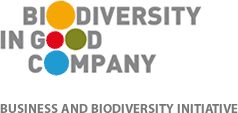Where does GIZ stand with their corporate environmental management? GIZ Climate and Environmental Report 2017
After its revision last year, GIZ’s Environment Programme 2016–2020 now focuses on climate neutrality and sustainable procurement.
When it comes to climate management at GIZ, GIZ pursues the policy of first avoiding and then reducing emissions, and only compensating for them in the third step. While GIZ has already been compensating for the greenhouse gas emissions they cause in Germany since 2013, they are striving to achieve climate neutrality at GIZ both in Germany and abroad by 2020. The Federal Ministry for Economic Cooperation and Development (BMZ) has set itself the goal of becoming climate neutral by 2020.
Emission reduction and compensation play a central role in the revised Environment Programme. For example, GIZ’s greenhouse gas emissions are to be broken down into individual footprints by 2020. All employees will then have an insight into their personal climate footprint, which they can improve accordingly.
In 2017, the average greenhouse gas emissions per employee in Germany amounted to 6.15 tonnes, which approximately corresponds to the average annual requirement of four people in India. This figure has decreased by 4.6% since 2015 and is set to fall by at least another 2.5% annually.
The data used up to now comes from the Eco Management and Audit Scheme (EMAS) for the German locations and the Corporate Sustainability Handprint® (CSH) for the foreign offices. GIZ's country offices have already been recording their sustainability activities via the CSH since 2014. It is the central instrument for surveying, assessing and promoting corporate sustainability abroad.
However, the requirements of EMAS extend far beyond recording climate data. For example, the management system also addresses aspects of resource consumption, including electricity, heating energy and paper, and additionally includes sustainable procurement. The latest Climate and Environmental Statement shows that GIZ has succeeded in continuously reducing its resource consumption since 2015. For example, a GIZ employee in Germany now uses nearly a third less paper than three years ago.
When it comes to procurement, the aim of GIZ is to continue implementing the measures they have begun. This includes integrating sustainability criteria into tenders and developing training measures. For example, GIZ will be publishing an e-learning tool on sustainable procurement for their service providers. In addition, GIZ procurement staff will receive training in 2019 on the latest standards.
Dowload of GIZ’s Climate and Environmental Statement 2017 [pdf]
Eike Vater, Eike.vate[at]giz.de

![[Translate to English:] Cover GIZ Klima- und Umweltbilanz](/fileadmin/_processed_/9/f/csm_GIZ_Klima_und_Umweltbilanz_2017_1da52261a4.jpg)